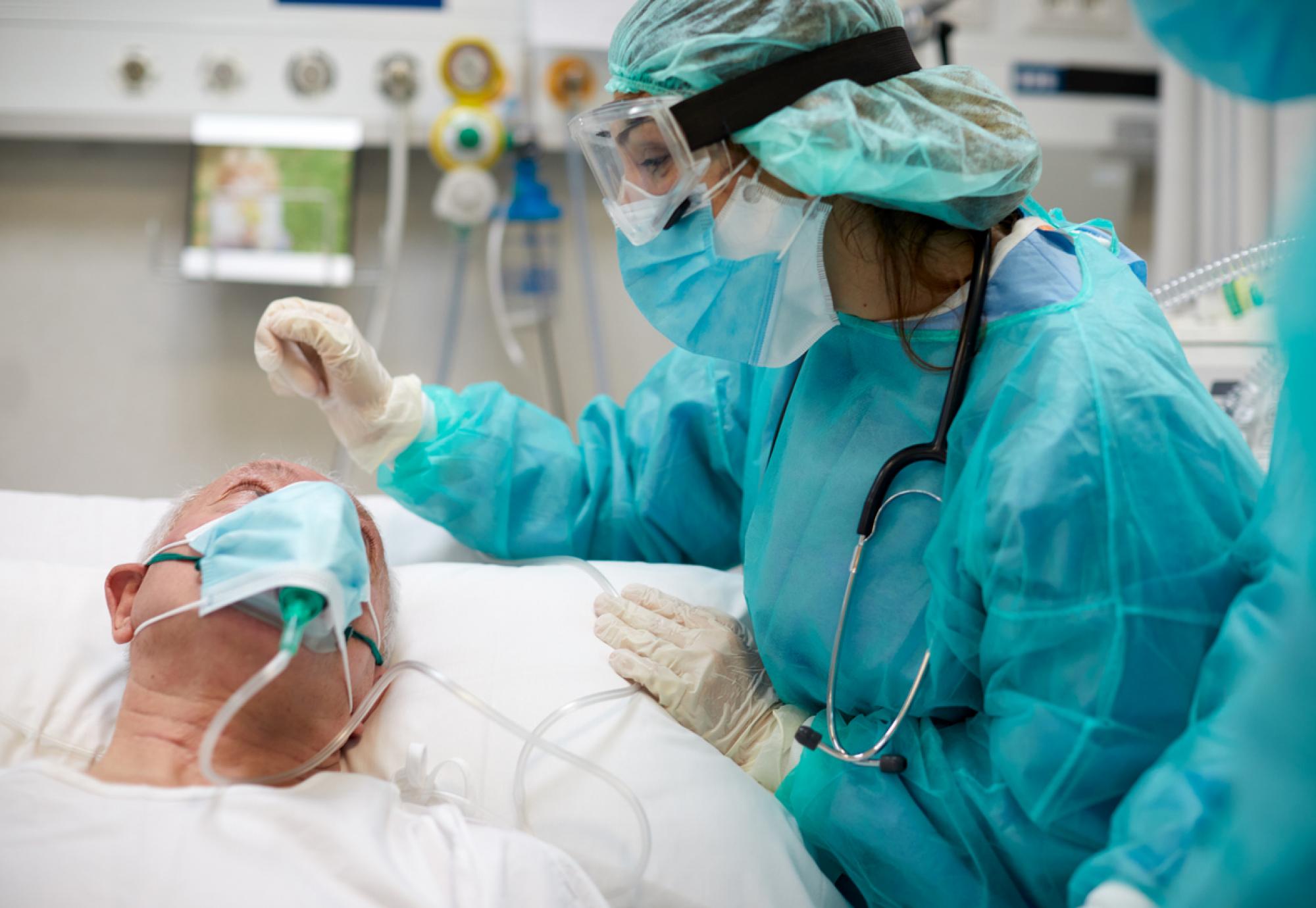Addenbrooke’s Hospital NHS Trust along with 20 other hospitals from across the world have used AI in a study to predict the oxygen needs of Covid patients, on a global scale.
The research study – referred to as EXAM (for EMR CXR AI Model) - aimed to build an AI tool to predict how much extra oxygen a Covid-19 patient may need in the first days of hospital care, using data from across four continents.
The technique, known as federated learning, used an algorithm to analyse chest x-rays and electronic health data from hospital patients with Covid symptoms.
Professor Fiona Gilbert, who led the study in Cambridge, and chair of radiology at the University of Cambridge School of Clinical Medicine, honorary consultant radiologist at Addenbrooke’s Hospital, said: “Federated learning has transformative power to bring AI innovation to the clinical workflow.
“Creating software to match the performance of our best radiologists is complex, but a truly transformative aspiration.
“The more we can securely integrate data from different sources using federated learning and collaboration, and have the space needed to innovate, the faster academics can make those transformative goals a reality.”
To maintain strict patient confidentiality, the patient data was fully anonymised, and an algorithm was sent to each hospital, so no data was shared, or left its location.
Once the algorithm had ‘learned’ from the data, the analysis was brought together to build an AI tool which could predict the oxygen needs of hospital Covid patients anywhere in the world.
To check the accuracy of EXAM, it was tested in a number of hospitals across five continents, including Addenbrooke’s Hospital.
The results showed it predicted the oxygen needed within 24 hours of a patient’s arrival in the emergency department, with a sensitivity of 95% and a specificity of over 88%.
First author on the study, Dr Ittai Dayan, from Mass General Bingham in the US - where the EXAM algorithm was developed - said: “We were able to build a model that can help frontline physicians worldwide
“Usually in AI development, when you create an algorithm on one hospital’s data, it doesn’t work well at any other hospital.
“By developing the EXAM model using federated learning and objective, multimodal data from different continents, we were able to build a model that can help frontline physicians worldwide.”
Bringing together collaborators across North and South America, Europe and Asia, the EXAM study took just two weeks of AI ‘learning’ to achieve high-quality predictions.
The outcomes of around 10,000 Covid patients from across the world were analysed in the study, including 250 who came to Addenbrooke’s Hospital in the first wave of the pandemic in March/April 2020.
The research was supported by the NIHR Cambridge Biomedical Research Centre, and developed in partnership with healthcare technology leader, NVIDIA.
Studying information (‘data’) that is routinely collected in patient electronic health records is an important part of this research.
To protect confidentiality, details that could identify individuals (such as name or date of birth) are removed before the data is used.
Just like clinical trials, all research that involve patient and/or staff health records must have appropriate ethical and regulatory approvals.
It was published yesterday in ‘Nature Medicine’, and is one of the largest, most diverse clinical federated learning studies to date. https://www.nature.com/articles/s41591-021-01506-3.



















